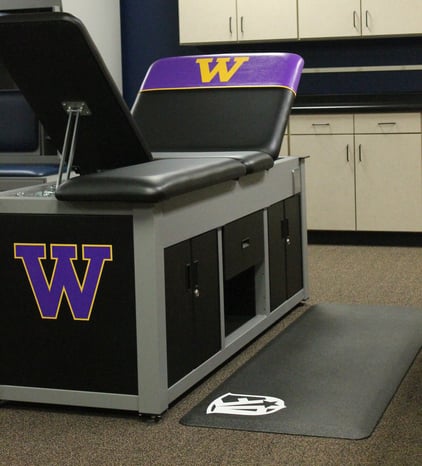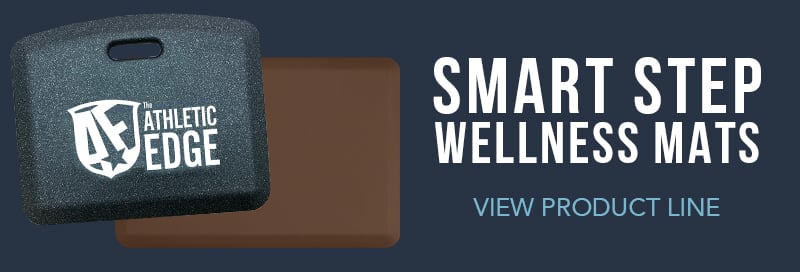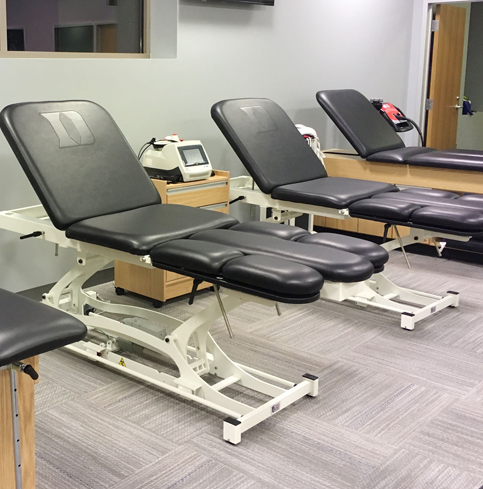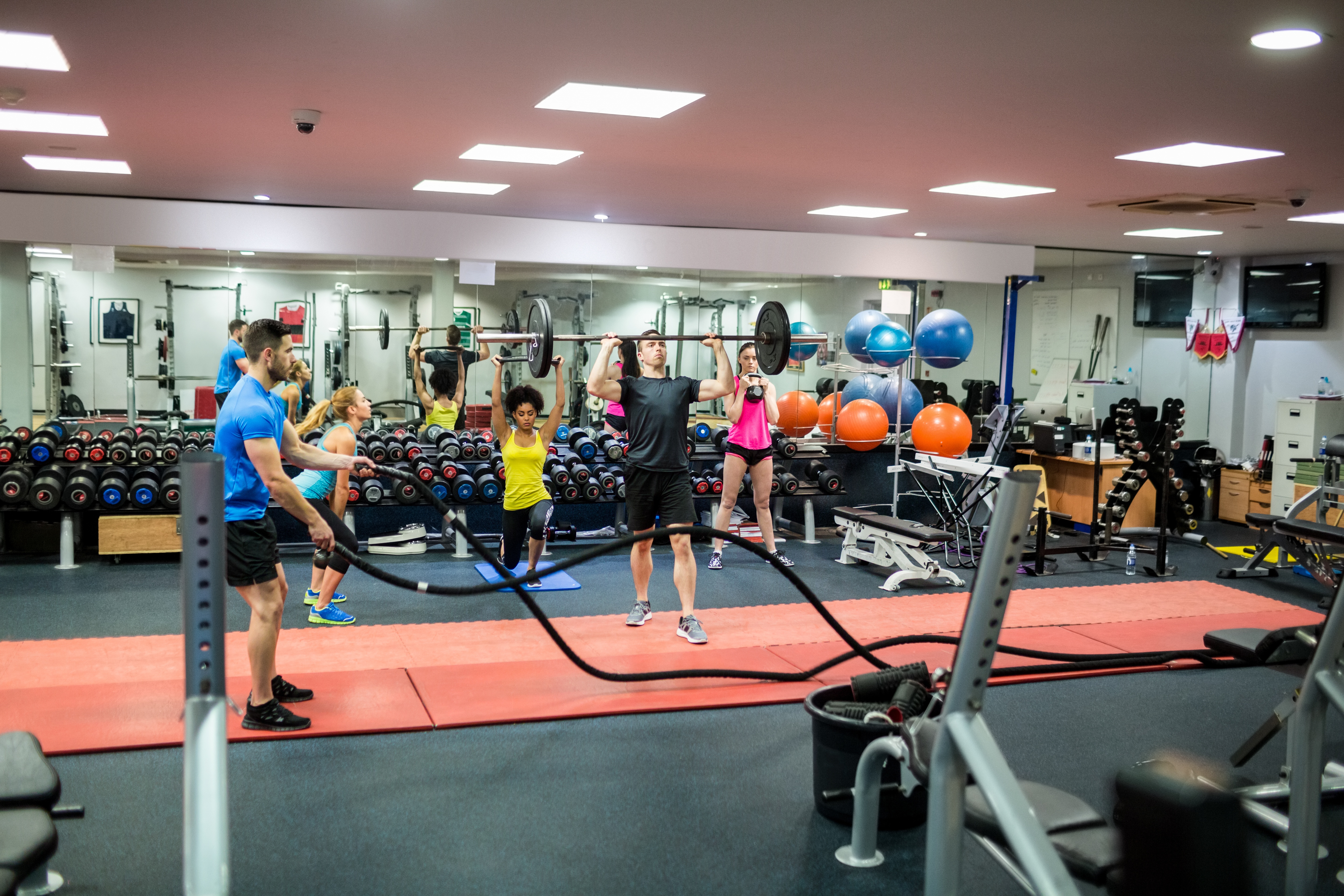Standing Safe
The human body is designed to move. Unfortunately, in today's workplace environment most people have either sedentary jobs, or jobs that require long hours of continuous standing. Office jobs that require sitting at a desk for eight or more hours per day is generally considered unhealthy. Although standing can be a healthier alternative to continuous sitting, prolonged standing can place excess strain on the back, legs and feet. This blog will discuss the benefits of using anti-fatigue mats to lessen the strain.
 |
Treat in Comfort
Athletic trainers can benefit from using anti-fatigue mats right alongside their treatment table. Cushioned support alleviates back pain caused by your daily practice, enhances health through self-care improving the quality of your work, and sets a healthy example for your athletes.
Distribution of Pressure
Anti-fatigue mats provide a cushioned surface to stand on while at work for long hours. One benefit for using an ergonomic mat is evenly spread pressure through the feet ensuring firm support to prevent further problems in the legs and back. With pressure reduced, the body does not have to work as hard to achieve body stabilization resulting in better posture for a longer period of time.
Improved Blood Flow
Standing instead of sitting improves blood flow throughout the body and utilizing an anti-fatigue mat enhances the benefit. Hard surfaces do not lend themselves to effective blood flow thus destabilizing your base (feet). Anti-fatigue mats help to curb this problem by reducing pressure in the feet which increases circulation. In addition, the reduced pressure and strain relaxes muscles and veins allowing better blood flow to the supporting muscles in the legs and back.
Reduced Energy Expense
There can be too much of a good thing. Prolonged standing does burn an increased amount of calories, but energy levels can wane. Reduced energy levels can contribute to poor posture. Tight muscles in the legs and back can lead to back issues. To break the negative chain reaction, anti-fatigue mats allow a supported standing position for a longer period of time with correct posture.
Increased Insulation
Anti-fatigue mats do add an extra layer between the cold, hard floor and the soles of your feet. For those who work in a non-carpeted work space, the coolness factor can spread up the legs potentially decreasing blood circulation and increasing stiffened muscles.
 |
For individuals who cannot avoid standing for long periods of time, the use of anti-fatigue mats is often recommended to reduce symptoms such as tiredness and discomfort. Overall, anti-fatigue mats are designed to help reduce pain felt in the feet, legs and back by offering cushioned support. Use of an anti-fatigue mat will not alleviate 100% of problems, but adding one to your training room can greatly help to reduce symptoms.
This blog was curated from the article, "Do Anti-Fatigue Mats Work According to a Chiropractor?" published in Lynx Healthcare on June 22, 2018.
The information, including but not limited to, text, graphics, images and other material contained on this page are for informational purposes only. The purpose of this post is to promote broad consumer understanding and knowledge of various health topics. It is not intended to provide or be a substitute for professional medical advice, diagnosis or treatment.





.webp)


